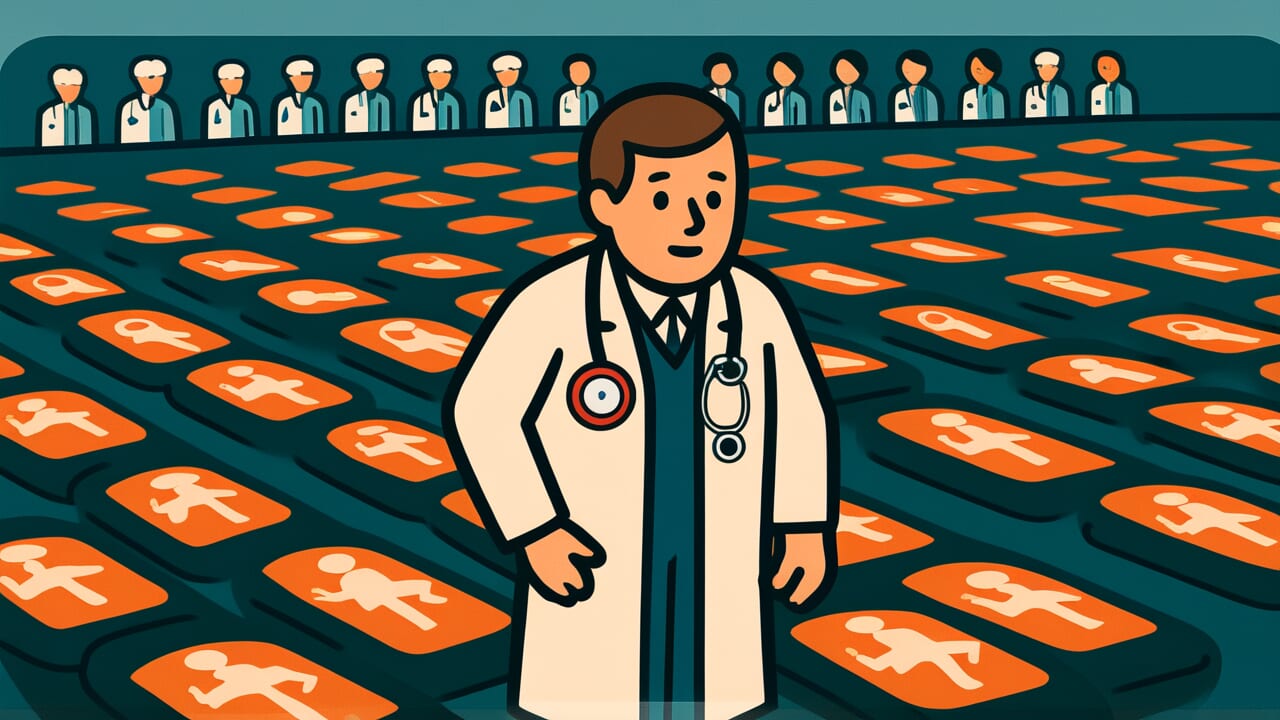How to Read “You cannot become a good doctor without killing a hundred people”
Hyakunin korosaneba ryōi ni narenu
Meaning of “You cannot become a good doctor without killing a hundred people”
This proverb means that doctors must go through many failures and trials to develop excellent skills. No matter how talented or well-studied someone is, they cannot become a truly great doctor without gaining actual clinical experience.
It expresses the harsh reality of medical practice.
This saying is used beyond medicine. It applies to any technical or professional field where gaining experience without fear of failure is important.
When young doctors or craftsmen feel discouraged by mistakes, people use this proverb to encourage them. It reminds them that failure is the foundation of growth.
Today, this phrase does not justify medical errors. Instead, it teaches the importance of humility.
No matter how much experience you gain, you can never be perfect. You must always keep learning. This proverb shows the mindset every professional needs.
Origin and Etymology
There is no clear record of when or where this proverb first appeared in literature. However, its structure suggests it expresses the harsh reality of learning medical skills.
The number “a hundred people” is not meant literally. It is an exaggeration meaning “very many.”
Japanese has long used “hundred” to express large quantities. You can see this in other proverbs like “one look is worth a hundred words” and phrases meaning “battle-hardened.”
The strong word “killing” shows how serious medical practice is. From the Edo period through the Meiji era, medicine was still developing. Treatment options were limited.
Anesthesia techniques were primitive. Surgery was a life-or-death matter for patients. A doctor’s poor judgment or lack of skill could directly cause a patient’s death.
Against this background, the proverb uses shocking language deliberately. It expresses the difficulty of being a doctor and the unavoidable failures that come with gaining expertise.
By speaking about “learning from failure” in medicine, the most serious field of all, the proverb emphasizes the weight of this universal truth. It applies to all technical professions.
Usage Examples
- My failures as a resident made me who I am today. “You cannot become a good doctor without killing a hundred people” is really true.
- We should watch over young people’s mistakes rather than blame them. After all, “you cannot become a good doctor without killing a hundred people.”
Universal Wisdom
This proverb speaks a universal truth. True mastery can only be built on accumulated failures. This is the essence of how humans learn.
We know there is a deep gap between understanding something intellectually and mastering it physically. This gap can never be fully bridged.
In medicine, where lives are at stake, using the shocking phrase “killing a hundred people” shows our ancestors’ honesty. Some realities cannot be softened with pleasant words.
No matter how careful you are, no matter how good your intentions, mistakes from inexperience are unavoidable. Facing and accepting this bitter fact is the first step toward true growth.
Humans are not perfect beings. If you fear failure and do nothing, you will never grow. But you also cannot take failure lightly.
In this contradictory situation, you must still move forward. This proverb perfectly captures this human destiny.
We should not simply blame those who fail. Instead, we should give them opportunities to learn from mistakes.
Those who fail must take the weight seriously and work hard not to repeat the same errors. This cycle of mutual understanding and growth has supported the transmission and improvement of skills throughout history.
When AI Hears This
Medical textbook knowledge is actually a collection of statistical data. For example, “patients with disease A show symptom X 70% of the time.”
But when new doctors use these numbers to diagnose, they cannot be certain the patient really has disease A. This is because these are “prior probabilities” showing general trends only.
In Bayesian statistics, you update probabilities each time you get new evidence. If a patient says “I cough at night,” that information might raise the possibility of disease A to 85%.
Blood test results might push it to 95%. Through this repetition, the “posterior probability” becomes more precise.
What is interesting is that failure data has overwhelmingly high value. In AI machine learning, misclassified cases improve prediction models more than correct data does.
When a doctor experiences “I diagnosed disease B from this symptom pattern, but it was actually disease C,” their brain’s probability model updates dramatically.
A hundred failures means mastering a hundred types of “conditional probabilities not found in textbooks.”
In other words, a good doctor is like a high-precision human AI. They have updated prior probabilities thousands of times with massive failure data.
They have built an extremely precise posterior probability distribution in their head. The ancients understood this statistical learning process through experience.
Lessons for Today
This proverb teaches modern people the courage to accept failure as an opportunity for growth. In today’s society where perfectionism spreads, more people cannot try new things because they fear failure.
But real growth only exists beyond failure.
If you are trying to learn a new skill, know that not doing well at first is natural. People learning programming encounter countless errors.
People learning instruments hit wrong notes many times. People starting to cook make failed dishes. This is not shameful. It is a necessary process for improvement.
What matters is what you learn from failure. Look back so you do not repeat the same mistakes. Find points to improve. Apply them next time.
This humble attitude is the path to true mastery.
You can also become more tolerant of others’ failures. When you understand everyone walks this road, you can offer support instead of criticism.
An environment that allows failure and encourages learning helps both individuals and organizations grow.



Comments